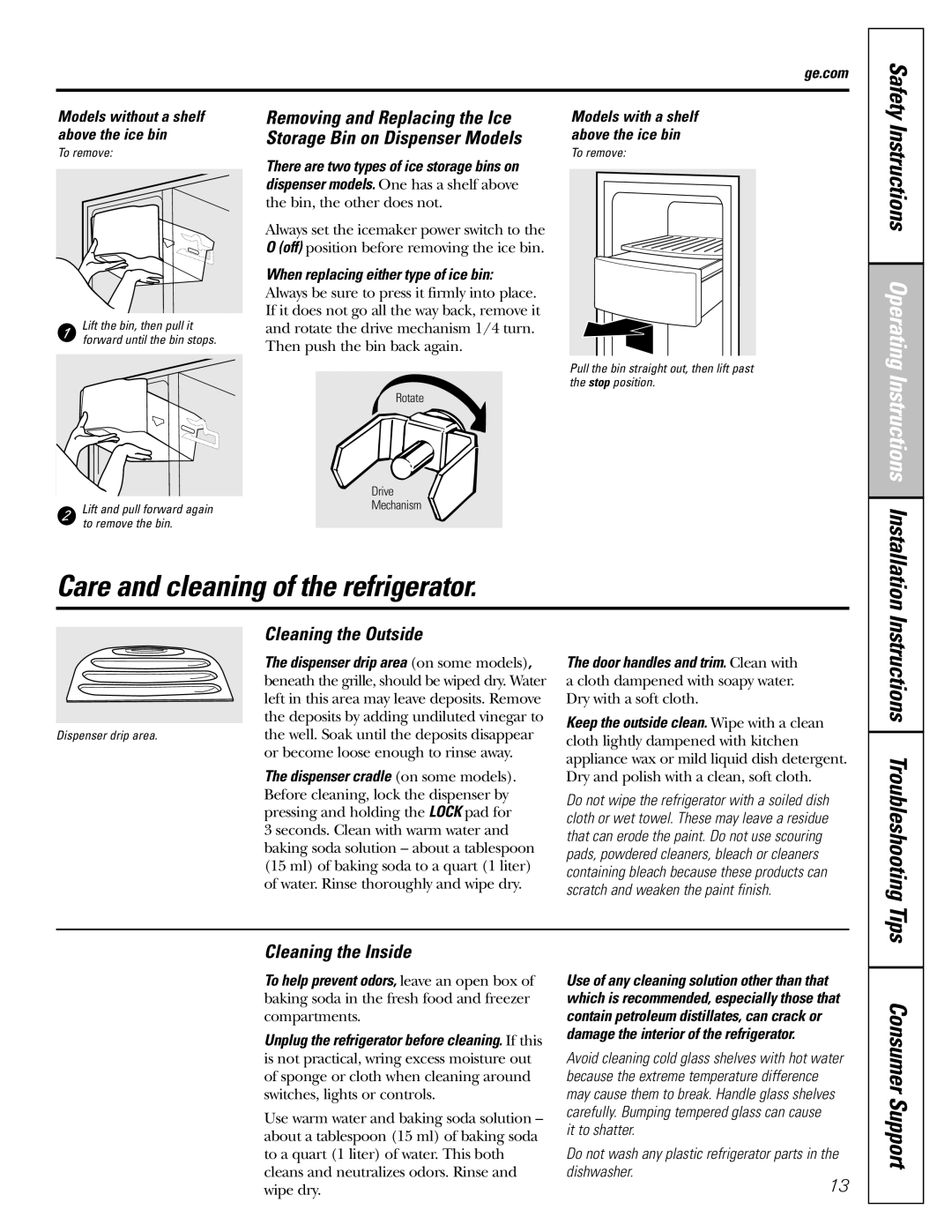
ge.com
Models without a shelf | Removing and Replacing the Ice | Models with a shelf |
above the ice bin | Storage Bin on Dispenser Models | above the ice bin |
To remove: |
| To remove: |
Safety
Lift the bin, then pull it forward until the bin stops.
There are two types of ice storage bins on dispenser models. One has a shelf above the bin, the other does not.
Always set the icemaker power switch to the O (off) position before removing the ice bin.
When replacing either type of ice bin:
Always be sure to press it firmly into place. If it does not go all the way back, remove it and rotate the drive mechanism 1/4 turn. Then push the bin back again.
Rotate
Pull the bin straight out, then lift past the stop position.
Instructions Operating Instructions
Drive
Lift and pull forward againMechanism to remove the bin.
Care and cleaning of the refrigerator.
Installation
Dispenser drip area.
Cleaning the Outside
The dispenser drip area (on some models), beneath the grille, should be wiped dry. Water left in this area may leave deposits. Remove the deposits by adding undiluted vinegar to the well. Soak until the deposits disappear or become loose enough to rinse away.
The dispenser cradle (on some models). Before cleaning, lock the dispenser by pressing and holding the LOCK pad for 3 seconds. Clean with warm water and baking soda solution – about a tablespoon (15 ml) of baking soda to a quart (1 liter) of water. Rinse thoroughly and wipe dry.
The door handles and trim. Clean with a cloth dampened with soapy water. Dry with a soft cloth.
Keep the outside clean. Wipe with a clean cloth lightly dampened with kitchen appliance wax or mild liquid dish detergent. Dry and polish with a clean, soft cloth.
Do not wipe the refrigerator with a soiled dish cloth or wet towel. These may leave a residue that can erode the paint. Do not use scouring pads, powdered cleaners, bleach or cleaners containing bleach because these products can scratch and weaken the paint finish.
Instructions Troubleshooting Tips
Cleaning the Inside
To help prevent odors, leave an open box of baking soda in the fresh food and freezer compartments.
Unplug the refrigerator before cleaning. If this is not practical, wring excess moisture out of sponge or cloth when cleaning around switches, lights or controls.
Use warm water and baking soda solution – about a tablespoon (15 ml) of baking soda to a quart (1 liter) of water. This both cleans and neutralizes odors. Rinse and wipe dry.
Use of any cleaning solution other than that which is recommended, especially those that contain petroleum distillates, can crack or damage the interior of the refrigerator.
Avoid cleaning cold glass shelves with hot water because the extreme temperature difference may cause them to break. Handle glass shelves carefully. Bumping tempered glass can cause
it to shatter.
Do not wash any plastic refrigerator parts in the dishwasher.
13
